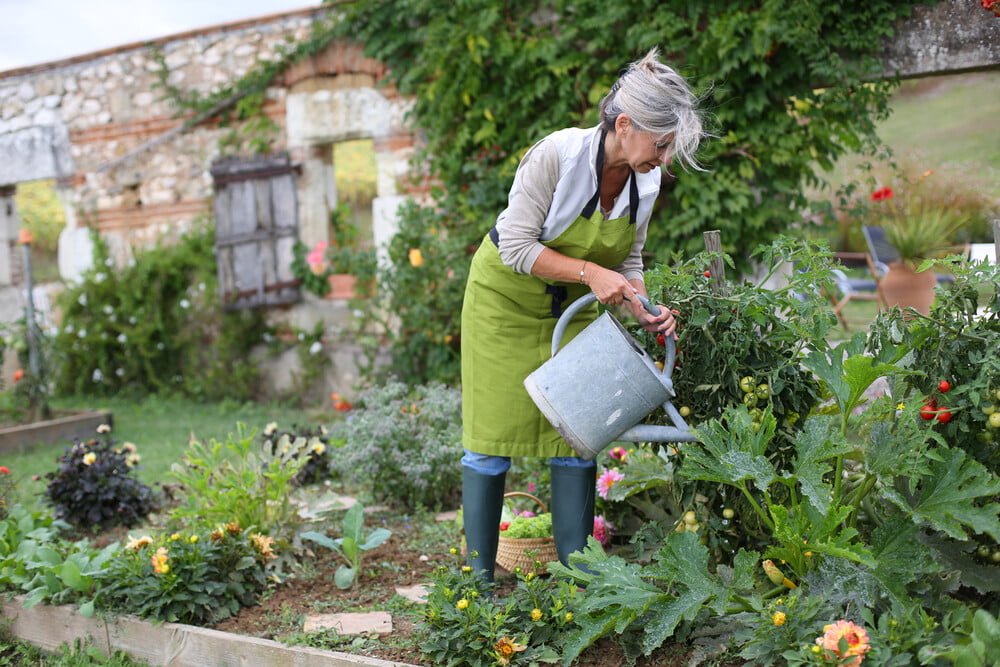Everything You Need to Know About Eco-Friendly Gardening
With extra people selecting up gardening at some stage in the pandemic, why now not placed some of your meals waste or leaves out of your yard to accurate use?
How does your lawn develop? Pretty well, in case you’re one of the millions of Americans who’ve found—or rediscovered—gardening during the pandemic. “We’ve seen an elevated desire to connect with the herbal world,” says Lisa McDonald Hanes, co-proprietor of Redbud Native Plant Nursery in Media.

Modern gardeners want green approaches to tend their plots. That’s wherein composting comes in. Rescued from its ’70s hippie-dippie exile, composting has been newly embraced as “a way to heal and convey a higher gadget,” Hanes says.
For the uninitiated, composting is the way organic depend—meals scraps, leaves, even animal hair—certainly decomposes and will become fertilizer. According to Mother Compost, the neighborhood employer launched via Gwenn Nolan in 2018, the average American discards 30 pounds of garbage every week. At least 20 percent of this is natural material that could be composted. “The meals scraps we devour nevertheless have dietary value and essential vitamins that may be put lower back into the soil,” Nolan says.
Composting stops biodegradable organic waste from going to a landfill and unnaturally decaying, which produces greenhouse gases like methane. “We want to position the nutrients lower back into the floor,” says Nolan. “Soil fitness is so vital to our fitness.”
Nutrient-rich and chemical-free, compost is extraordinarily easy to make. There are two forms of composting—bloodless and hot—and the proper ratio of components is important to initiate the chemical manner. Backyard composting is without difficulty carried out with bins to be had at domestic-and-lawn shops. Some local municipalities have composting centers with collection sites for organic fabric.
Many Main Liners are the use of Mother Compost, Nolan’s subscription-based service. Customers get a sure number of packing containers for their scraps. Every other week, Mother Compost trucks collect them and deliver smooth empties. Those waste-stuffed boxes have amounted to greater than 430,000 kilos of scraps at final be counted. They’re transported to Linvilla Orchards in Media, where the compost is created. Each subscriber receives up to 60 kilos of compost in the spring, just in time for planting.
Its first two years in commercial enterprise, Mother Compost had 500 subscribers from Bala Cynwyd to Devon—and Nolan enjoyed a banner year in 2020. “Seeds had been sold out nearly anywhere, and [orders for] composts flew,” she says.
Composting has severa blessings. “If you’re doing home gardening along with your personal composted soil, you’re much less possibly to use as many weed preventers and worm sprays,” says Melissa Mattingley, nursery manager and buyer at Main Line Gardens in Malvern.
Adds Nolan: “[Composting] approach we don’t need to use as many artificial chemical substances and all the ones matters that pass into agriculture.”
When it comes to composting and gardening, many traditions are handed down from grandparents to grandchildren. “It can help keep you in shape, bendy and in song with the herbal cycles of life,” says McDonald, adding that the mixture of gardening and composting is a “natural health cycle.”
Gardening is oddly addictive, specifically with compost as fertilizer. “You get larger and higher flora,” says Mattingley.
For Nolan, it’s a “grounding, healing exercise—especially as we’re increasingly more spending a variety of time on era and feeling this disconnect from the herbal global.”
“We need to place the nutrients again into the ground. Soil health is so important to our health.” —Mother Compost’s Gwenn Nolan
McDonald advises newbie green thumbs to begin slowly. “Don’t be intimidated and assume you want to overly research and recognize an excessive amount of,” she says. “A park institution or different gardening organization is a amazing manner to get started out.”
Location is fundamental. The amount of sun determines whether or not flora will thrive—and a few require more work than others. “Gardening may be very excessive upkeep,” Mattingley says. “But there are low-protection plants, as well.”
The identical goes for composting. “Where you placed your compost bin consequences how it works for you,” says Nolan.
